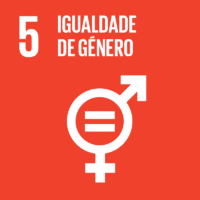Ciência_Iscte
Publicações
Descrição Detalhada da Publicação
Título Revista
Revista de Sociologia e Política
Ano (publicação definitiva)
2018
Língua
Inglês
País
Brasil
Mais Informação
Web of Science®
Scopus
Google Scholar
Esta publicação não está indexada no Overton
Títulos Alternativos
(Português) As prefeitas em Portugal: um estudo de caso sobre a representação política feminina e a cidadania
Abstract/Resumo
The Portuguese 25th April 1974 revolution introduced a process of democratization. It was also the beginning of women’s general participation in elections, both as voters and elected representatives, as well as their recognition as equal to men in all aspects of social, economic and political life. After an historical analysis of women’s participation in Portuguese politics, we come to the conclusion that the introduction of a parity law in 2006 has positively influenced the election of women members of the Portuguese Parliament and women representatives to the European Parliament. In the 2015 national elections of 2015, for the first time one third of the elected the Members of the Portuguese Parliament were women. However, in local government there is still a long way to go to achieve such levels of female political representation. Does the political system limit women’s access to elected offices? Without any doubt, gender wise Portugal is on the right track, but the questions remain: why are women in local politics still a minority? What obstacles do they face? And what may be done to change this? There are several hypotheses: improving education levels, fighting low civic participation and trying to change the existing behaviour differences in national and local party committees.
A large study of local government in Portugal has already been conducted and published. For this research new data has been collected from municipalities’ and parties’ official sites, as well as the press, in order to follow the evolution of women in Portuguese local government, first as proposed members of the earlier administrative committees which ruled municipalities from 1974 until the first local elections which took place on 12th December 1976, and then as elected representatives from 1976 to the latest 2013 local elections, comparing this level with central government. Trying to present some hope for change, we show some examples of political actions that may encourage female presence in local government and increase their role as participative citizens.
Although in Portugal four decades of the democratic regime have gone by, women’s representation in Portuguese politics is still low. But a sociological study of this group reveals higher educational levels and specialized jobs, particularly in teaching and management. If women in representative jobs are indeed more educated than men, could they have more to contribute to the mayor’s office? Party membership is also discussed, revealing that left wing parties invest more in women in local government than right wing parties do.
Agradecimentos/Acknowledgements
--
Palavras-chave
Women,Mayors,Democracy,Parties,Portugal
Classificação Fields of Science and Technology
- Sociologia - Ciências Sociais
- Ciências Políticas - Ciências Sociais
Registos de financiamentos
| Referência de financiamento | Entidade Financiadora |
|---|---|
| UID/SOC/03126/2013 | Fundação para a Ciência e a Tecnologia |
Contribuições para os Objetivos do Desenvolvimento Sustentável das Nações Unidas
Com o objetivo de aumentar a investigação direcionada para o cumprimento dos Objetivos do Desenvolvimento Sustentável para 2030 das Nações Unidas, é disponibilizada no Ciência_Iscte a possibilidade de associação, quando aplicável, dos artigos científicos aos Objetivos do Desenvolvimento Sustentável. Estes são os Objetivos do Desenvolvimento Sustentável identificados pelo(s) autor(es) para esta publicação. Para uma informação detalhada dos Objetivos do Desenvolvimento Sustentável, clique aqui.

 English
English




